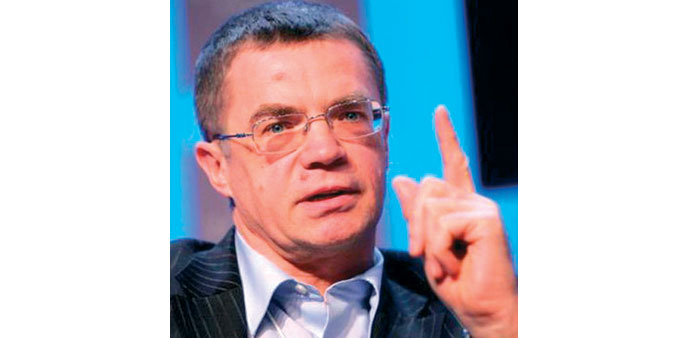Gazprom will cut pipeline gas prices for European buyers this year in response to competition, its top export official said yesterday.
Gazprom, Russia’s largest company by market capitalisation, generates around 55% of its gas revenues in Europe where it supplies around a quarter of gas needs. Its revenues from gas sales to Europe declined 3% last year to $55.9bn.
The company has already had to give in to pressure to cash-strapped European buyers locked into long-term supply contracts, cutting prices and returning some money in “retroactive payments.” This year’s reductions will be smaller, however.
“The price correction will be even less than in the previous round of talks, when it stood at 7-10%,” Alexander Medvedev, the head of Gazprom’s export arm, told a briefing.
Total rebates to European companies stood at 102.7bn roubles ($3.22bn) in 2012.
Following the first adjustments last year, Gazprom’s export volumes to Europe have recovered slightly, clawing back some market share it had lost to Norwegian rival Statoil, which supplies most of its gas under spot market deals which are currently cheaper than Russia’s contracts.
Medvedev said the repayments are expected to total less than $800-$900mn this year, although this amount excludes possible payments to Germany’s utility RWE, which has been involved in an arbitration case with Gazprom.
Medvedev also said Gazprom would continue to cut prices this year in new deals where its sale prices are pegged to declining oil prices, though at a slower pace than has been the case.
He said new deals could include Italy’s Eni and France’s GDF Suez.
Medvedev expects the average gas price for Europe in Gazprom’s long-term contracts will decline to $370-$380 per 1,000 cubic metres from $402 last year, confirming previous reports.
The proposed price drop to Europe would translate into a fall from $14.8 per million British thermal units (mmBtu) to around $13.7 per mmBtu.
While this is still higher than the average price of $9 per mmBtu paid at Europe’s benchmark gas hub, Britain’s National Balancing Point (NBP), it is competitive with winter spot prices and below those paid for Asian liquefied natural gas (LNG) cargoes.
In a move to strengthen its European hold, Gazprom wants full access to Germany’s Opal pipeline, an extension to the Nord Stream link built by Russia to bypass transit countries such as Ukraine.
Some analysts reckon Gazprom’s 2013 forecast for gas prices is too low, meaning it may be factoring in a possible pay-out to RWE Transgas.

